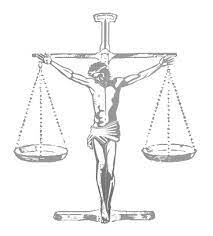The law is given as a standard for human behavior, which encourages and deters certain actions. The Holy Scriptures inform us about the Christian duty to obey the law. In the book of Romans, St. Paul tells us to submit to the governing authorities (13:1-10); yet in the book of Acts, St. Peter informs us of the limits of submission or obedience to authority, where he told the Sanhedrin, “One must obey God rather than men.” (5:29). In the 4th Century, in his book, City of God, St. Augustine clarified that “an unjust law is no law at all.”
One of the articulate expressions of this standard of obedience in the modern world, comes by way of Martin Luther King, Jr.’s (“MLK”) 1963 Letter from the Birmingham Jail, wherein he noted that a just law “squares with the moral law, or the law of God;” noting that “[o]ne has not only a legal but a moral responsibility to obey just laws. Conversely, one has a moral responsibility to disobey unjust laws.”. He quotes the Dominican Angelic Doctor, St. Thomas Aquinas, that “an unjust law is a human law that is not rooted in eternal and natural law.” (See, Aquinas, ST I-II, QQ. 90-94). MLK explains that any law that “uplifts human personality is just; yet any law that degrades human personality is unjust.” By example, “all segregation statutes are unjust because segregation distorts the soul and damages personality.”
In the current generation, the unjust law permits the killing of the most vulnerable and innocent among us, children in the womb.
In his Thomistic writing, MLK cites the eternal and natural law. These very Catholic principles—grounded in Scripture—instruct us on the ways of God; the eternal law is God’s universal plan for directing every movement and action in creation, including the seen and unseen. (Ps. 19:9-11). The knowledge of truth radiates from the eternal law; as human beings on earth, we cannot know all the aspects of the eternal law, yet we can know the general principles of the eternal law in faith and morals by operation of the Holy Spirit and His Church as the pillar and foundation of truth (1 Tim. 3:15); and in science by observation of nature.
As Catholics, we often speak of the natural law, that comes to us via the Ten Commandments (Exodus 20) along with the law written on our hearts and in our minds (Jer. 31:0-34; Heb. 8:6-12; 10:16); teaching us what the law requires (Romans 2:14-16) given to us by the light of reason and truth. The natural law helps us to understand the knowledge of God’s existence and of His Creation, that leads to faith in Christ, enabling people to know and participate in the Kingdom of God here on earth.
Mr. John Keenan, OP, JD
